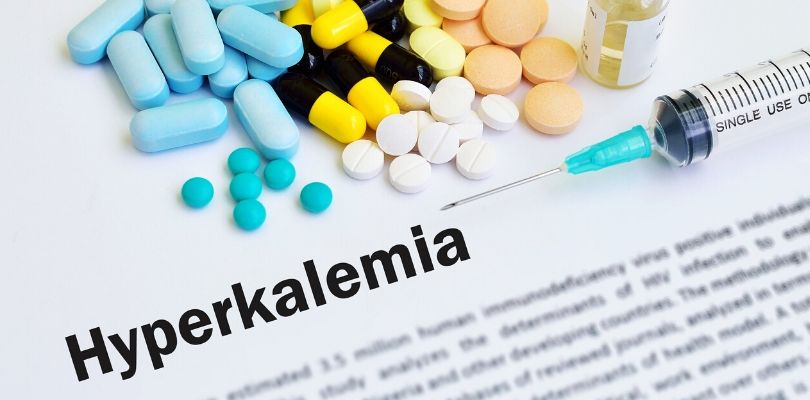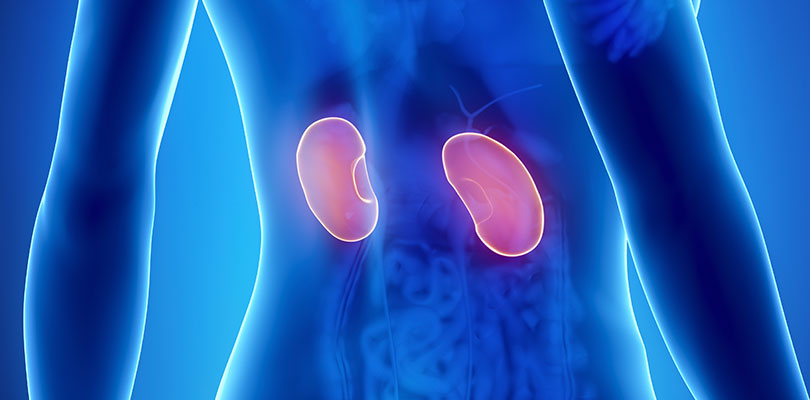How to Know if You Have Hyperkalemia
Hyperkalemia is the medical name for high potassium levels. Potassium is an essential nutrient that we get from food. It plays a vital role in nerve and muscle function, including the muscles of the heart.
However, when potassium levels get too high, this can cause a variety of problems. Read on to learn all you need to know about hyperkalemia, its causes, symptoms and how to treat it.
What is Hyperkalemia?
We need a certain amount of potassium for our nerves and muscles to function correctly. Most experts consider potassium levels between 3.5 and 5mmol/L to be healthy. When potassium levels rise above 5.5mmol/L, this is classified as hyperkalemia. Potassium levels above 6mmol/L are extremely dangerous and should be treated as a medical emergency.
Causes of Hyperkalemia
Under normal circumstances, the kidneys are responsible for maintaining potassium levels in the blood. They filter out excess potassium and excrete it in the urine.
Therefore, the most common causes of hyperkalemia include acute kidney failure and chronic kidney disease. When the kidneys are not functioning as they should, potassium levels can build up in the body and become dangerously high.
Other causes of hyperkalemia include:
- Addison’s disease
- Poorly controlled diabetes
- Severe injuries, burns, or internal bleeding
- Certain medications (angiotensin II receptor blockers, ACE inhibitors, beta blockers, chemotherapy)
- Overuse of potassium supplements
- Dehydration
Although many foods contain potassium, it is unusual for people with healthy kidneys to develop hyperkalemia through their diets.
Signs and Symptoms of Hyperkalemia
In many cases, hyperkalemia does not cause any symptoms and it is detected during a routine blood test. In addition to potassium levels over 5.5mmol/L, other signs of hyperkalemia include:
- Reduced blood flow (hypoperfusion)
- Muscle tenderness
- Jaundice
- Abnormal ECG results
Although not strictly a sign of hyperkalemia, reduced renal (kidney) function may be associated with this condition. Other symptoms of hyperkalemia which may occur include:
- Muscle weakness
- Tingling
- Numbness
- Irregular heartbeat
- Palpitations
- Shortness of breath
- Nausea or vomiting
These symptoms can develop gradually over the course of several weeks or months. However, in some people they may develop very suddenly. This can lead to paralysis or life-threatening irregularities in the heartbeat. In these cases, medical attention should be sought immediately.
Fragile X syndrome triggers a wide array of development issues, including intellectual impairment, hyperactive behavior, learning disabilities, and autism.
Prevention of Hyperkalemia
The majority of people with healthy kidneys do not need to worry about hyperkalemia. However, if you have kidney disease or one of the other conditions listed above, you should take some precautions.
Firstly, you will need to avoid potassium supplements and eat a low potassium diet. You should discuss this with a qualified dietician to ensure that you are still getting all the nutrients that you need.
Some foods which are especially high in potassium include:
- Cantaloupe melon
- Bananas
- Avocado
- Dried fruit
- Nuts and seeds
- Leafy greens (except kale)
- Squashes
- Beans and pulses
- Red meat
- Orange juice
- Grapefruit juice
- Salt substitutes
However, this is not an exhaustive list. Talk to your dietician about which foods you should and should not eat if you are at risk of hyperkalemia.
Another way to prevent hyperkalemia is to avoid dehydration. Drink plenty of fluids throughout the day to keep your potassium levels under control.
Finally, if you have kidney disease or other risk factors for hyperkalemia, you might want to discuss your medication regime with your physician. If you are taking any drugs that increase the risk of hyperkalemia, they might switch you to a safer alternative.
Hyperkalemia Treatment
As well as taking these preventative measures, there are several possible treatments for hyperkalemia. The most effective hyperkalemia treatment will depend on the underlying cause.
If your hyperkalemia is due to kidney failure, the most effective treatment may be hemodialysis. This treatment uses a machine to filter waste products from the blood in the same way that the kidneys should. This includes excess potassium.
Other hyperkalemia treatments include medication such as diuretics and potassium binders. Diuretics work by stimulating the kidneys to produce more urine. This helps them to flush out any excess potassium that may be present. Because these drugs make you urinate more often than usual, it is best to take them early in the morning.
Potassium binders usually come in a powder form. They work by binding with potassium from food inside the bowels. This stops the body from absorbing it and it is excreted as waste instead. Potassium binders are also available in enema form.
Treating hyperkalemia is a complex process. You will need to work closely with your doctor and dietician to find the right regime and make it as effective as possible. The good news is that for most patients, hyperkalemia is mild and easy to treat.
However, it is essential that this condition is identified early, before it becomes too severe. Therefore, you should ask for regular blood tests if you suffer from kidney disease or any other hyperkalemia risk factors.







